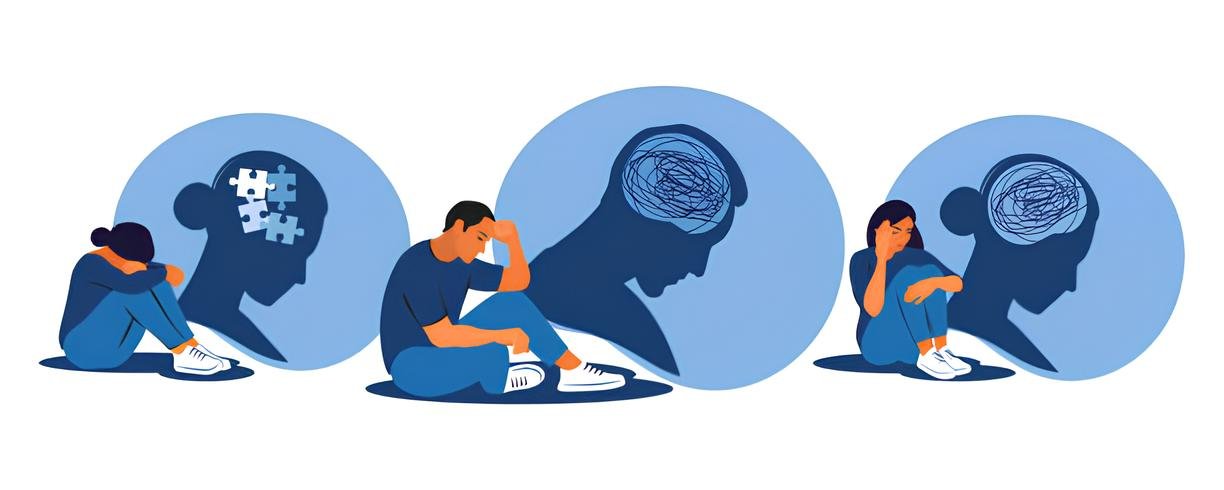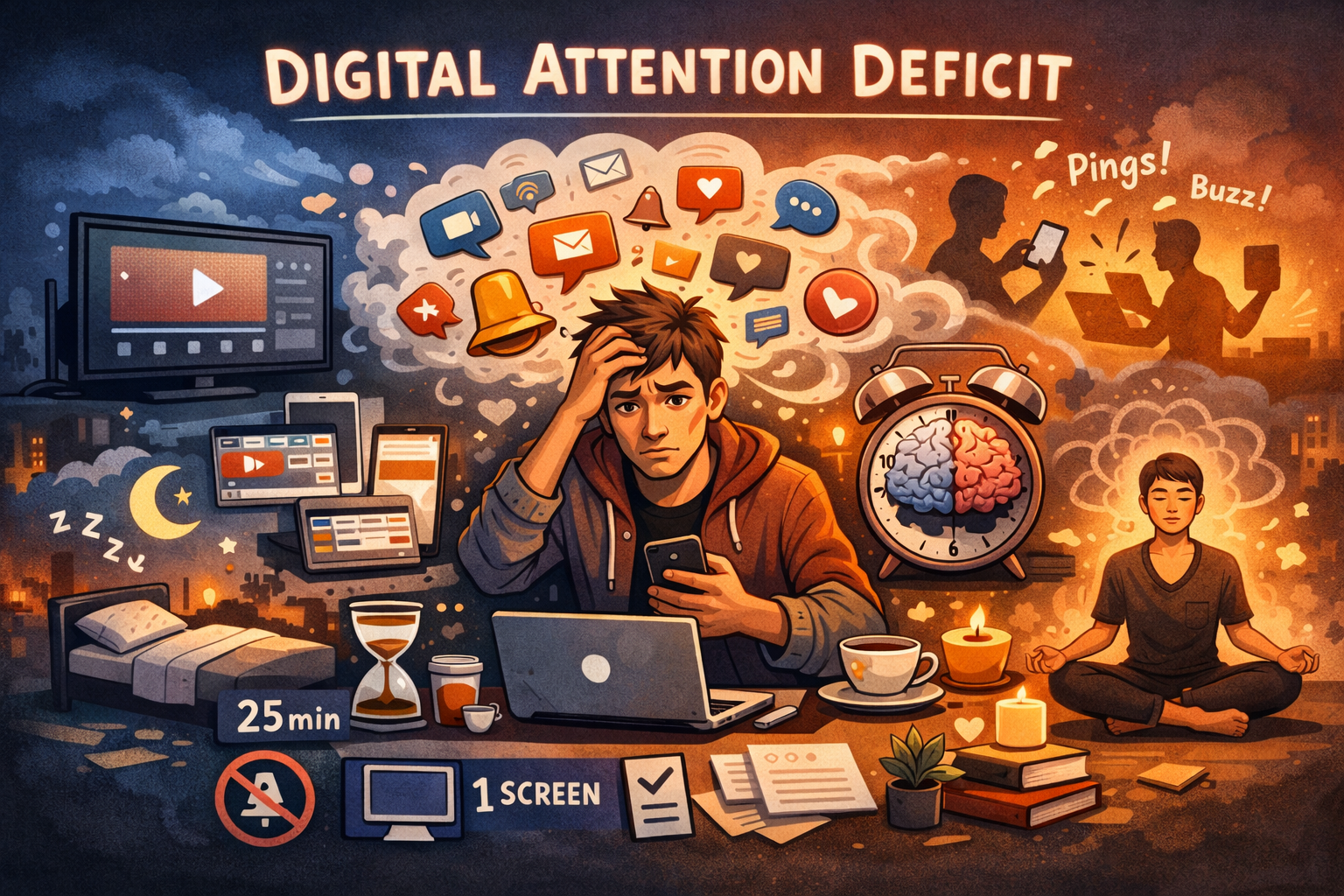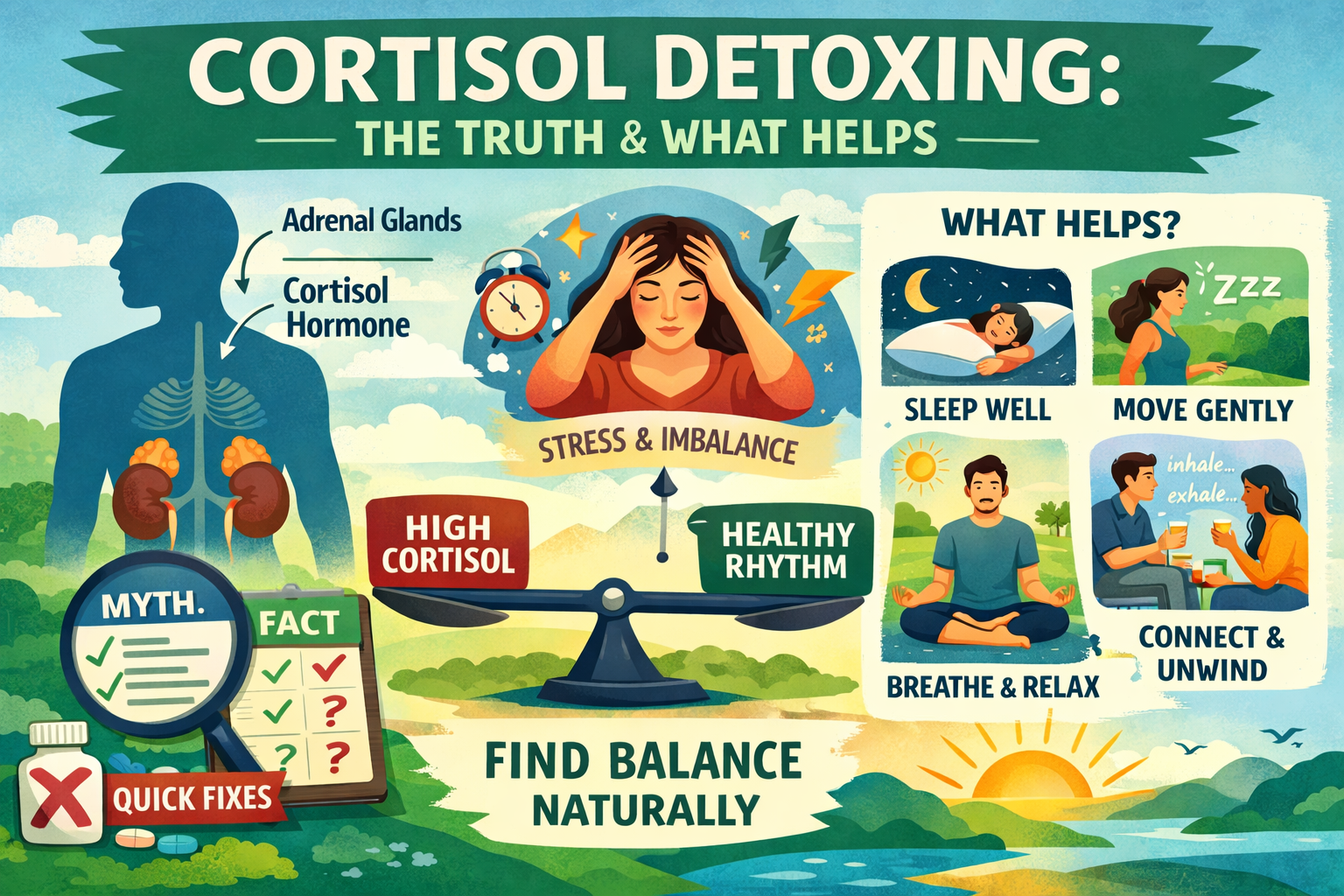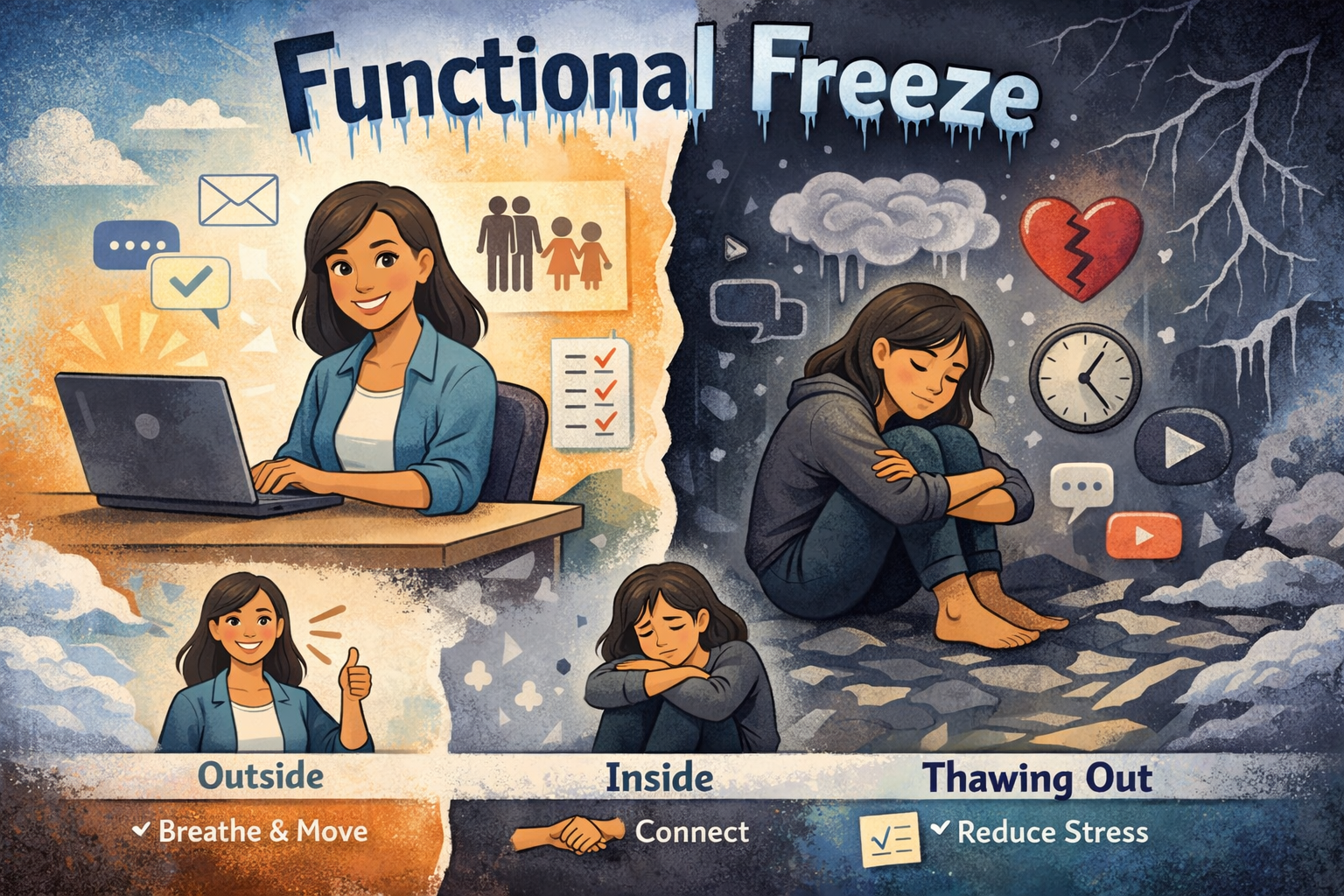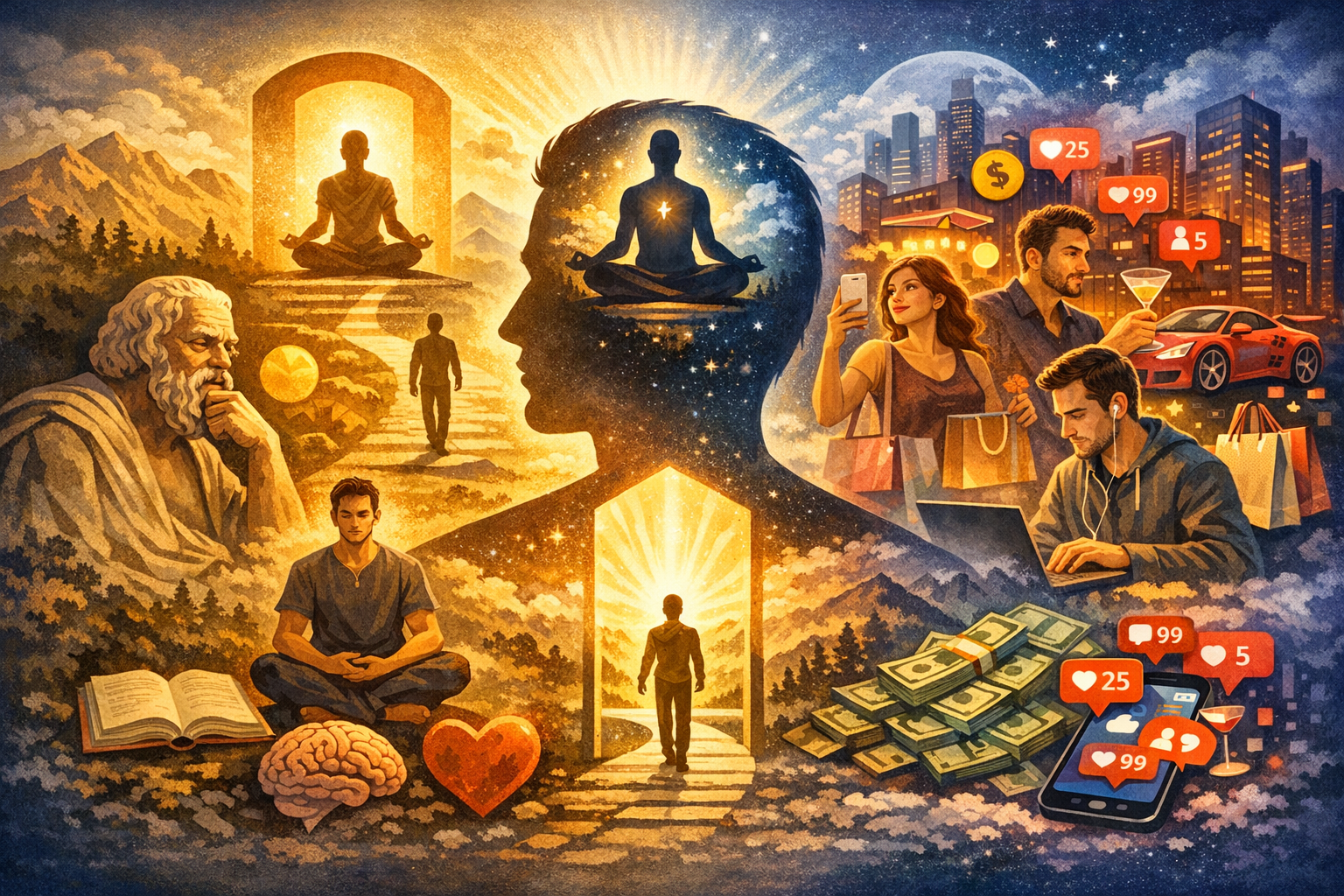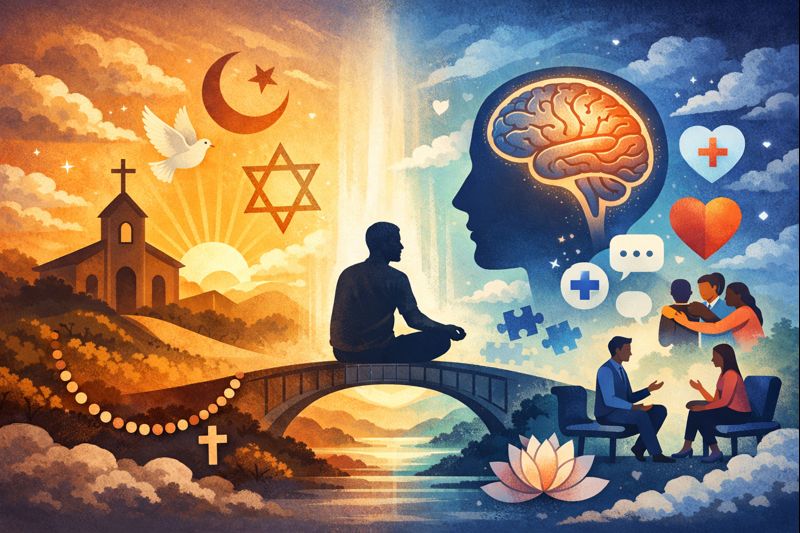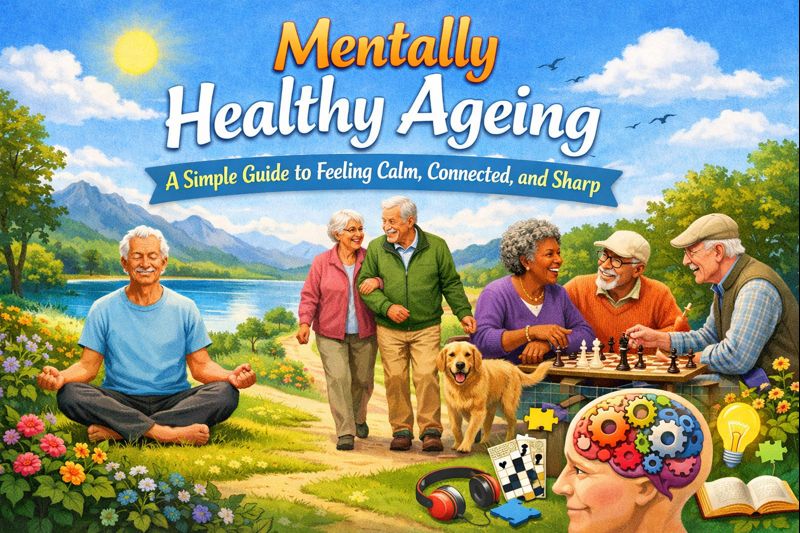We are currently living through unmatched transformative and disruptive changes in our rapidly evolving world today. The transformation has created a highly demanding environment which is driven by hyper competition across all areas and sectors. These are severe pressures and many people are unable to meet the work demands while at the same time they are struggling to navigate through demanding personal relationships, financial difficulties and uncertainty as well as struggling with serious health issues.
We often experience mentally stressed, anxious, depressed, and other negative emotions and feelings under challenging situations. The pertinent question here arises: how do we know if it is just a tough phase in life or something more serious? Understanding the difference among stress, anxiety, and depression can help us manage those challenging times in a better way and take professional help at the right time when we need it the most.
What is stress?
Stress is the way one responds to pressure. It is the capacity to handle life's pressure. Its occurs when we feel that we are getting overwhelmed and unable to cope with the challenge(s) before us. The rise in stress may vary from workplace pressures, exams, emotional disturbances due to financial problems, relationships, and family expectations.
Signs of Stress:
The following are the main signs we witness when we are under stress:
-
Feeling irritated or frustrated
-
Difficulty in getting sound sleep
-
Headaches or muscle tension
-
Trouble in focusing and concentrating
-
Increased heart rate
Stress is not always bad. In fact, it is beneficial at times. It can motivate us to complete tough tasks in time, to accomplish better outcomes, and to enhance performance. However, it becomes counterproductive and even harmful if it persists for a long time. It becomes chronic in nature, and this can lead to serious health problems, including high blood pressure and heart disease.
I remember preparing for my final exams in college days. The stress kept me awake at night, but it also pushed me to study harder. After the exams, the stress faded away. That is how stress works—it’s temporary and linked to specific events or tasks. However, when the same kind of pressure persists for a longer period, it becomes chronic.
What is anxiety?
Anxiety is more than just stress. It is a feeling of generalized fear or persistent worry that does not go away even when the stressful time is over. Uncertainty, fear of failure, or past experiences can trigger it. Sometimes, anxiety appears without any clear reason.
Signs of Anxiety:
-
Persistent worrying or overthinking
-
Feeling restless or on edge
-
Increased heartbeat and shortness of breath
-
Sweating or trembling
-
Difficult to concentrate or focus
Anxiety can sometimes be helpful if it is mild—like feeling tense and nervous before appearing for a job interview. However, when it persists and becomes unmanageable, it may become an anxiety disorder.
According to the World Health Organization (WHO), over 301 million people worldwide suffer from anxiety disorders, and that makes it one of the most common mental health problems. While the exact causes of anxiety disorders are complex and multifaceted, studies suggest a combination of genetic, environmental, and psychological factors that contribute to their development.
What is depression?
Depression is not just about feeling sad. In fact, it is a long-lasting feeling of hopelessness and loss of interest in routine activities. Unlike stress or anxiety, depression may not have a clear cause. Depression affects the way we feel, think, and behave. It makes even simple tasks very difficult.
It may lead to many emotional and physical problems and can adversely impact our ability to work and perform both at home and in the workplace. Ignoring depression can exacerbate its symptoms and lead to significant consequences.
Common signs of depression:
The following are the main symptoms of depression
-
Persistent feeling of sadness or emptiness in life
-
Loss of interest in activities once enjoyed
-
Chronic fatigue and lack of energy
-
Changes in sleep patterns and loss of appetite
-
Harmful thoughts of self-harm or even committing suicide (here the person needs immediate help)
Difference Between Stress, Anxiety, and Depression?
Factor |
Stress |
Anxiety |
Depression |
Cause |
Specific situations or pressures |
Uncertainty or fear of the future |
No clear reason; it can be triggered by past trauma. |
Duration |
Temporary, ends with the situation. |
Long-lasting worry, even after the situation is over |
Persistent sadness for weeks or months |
Physical Symptoms |
Tension, headaches, and trouble sleeping |
Restlessness, rapid heartbeat, and dizziness |
Fatigue, appetite changes, and chronic pain |
Emotional State |
Frustration, irritability |
Nervousness, fear |
Hopelessness, worthlessness |
How To Manage Stress, Anxiety, and Depression?
For Stress:
-
Set the right priorities and practice time management—prioritize tasks and avoid wasting time on unproductive activities. Set realistic goals, rather than fixing over-ambitious targets.
-
Regular Exercise—Being physically active helps release routine stress. Spend at least 30 minutes on brisk walking, doing yoga exercises, playing outdoor games, and sports activities. They make us physically and mentally active and stress-free.
-
Mindfulness and deep breathing exercises—These are very effective deep relaxation techniques for managing stress.
-
Take short breaks— keep away from work or studies for a few minutes. It relieves from immediate pressure.
-
Connect with others— Sharing your issues and worries with friends and colleagues can unburden our stressful feelings
For Anxiety:
-
Deep breathing exercises— There are many ancient ‘pranayama’ or breathing exercises that alleviate symptoms of anxiety. These exercises help calm persistent worrying and racing negative thoughts.
-
Limit caffeine and alcohol— These can increase anxiety symptoms.
-
Challenge negative thoughts— replace them with rational thinking.
-
Seek professional help— If anxiety affects your daily life, therapy can help.
For Depression:
-
Stay connected— Aloofness and isolation may worsen depression. Better to get connected with others. Family members and close friends must make a concerted effort to connect with the person suffering from depression.
-
Engage in little tasks— Even smaller activities like a short walk can boost mood.
-
Avoid self-criticism— Be kind to oneself. Others should avoid criticism of any kind toward the sufferer. and celebrate small wins.
-
Consult a health professional or therapist.— Professional help and guidance are extremely important for fast recovery in severe cases.
Seeking professional help: If our emotions and feelings start interrupting daily life, close relationships, or the workplace, it is the right time to take help. There is no harm or shame in reaching out to others. These types of mental challenges are not uncommon. Counseling, cognitive behavior therapy (CBT), medication, or simple lifestyle changes can make a big difference. We should remember a famous quote: "You don’t have to control your thoughts. You just have to stop letting them control you." by Dan Millman
Final Thoughts
Understanding the difference between stress, anxiety, and depression can help us take better care of our mental health. Stress is usually short-term and related to specific events. Anxiety is ongoing worry, even when there’s no immediate danger. Depression is deep, persistent sadness that affects daily life.
If you or someone you know is struggling, reach out to a trusted friend, family member, or professional. You’re not alone, and help is available.
If you're in NCR, India, and need support by the best psychiatrists near Vasant Kunj visit The Mind Therapy for resources and guidance. If you're looking for the Best psychiatrists near Vasant Kunj, they can help provide the assistance you need.
This guide is meant for awareness and support. It is not a substitute for professional medical advice. If you’re experiencing severe symptoms, please consult a mental health expert.
Are you looking for inner peace, deep relaxation or holistic solutions for mental health? Visit http://themindtherapy.in - your space for online counselling/therapy, free mental health tests, meditation, sound therapy etc.
Mind Therapy is India's trusted platform for mental health, mindfulness, and holistic healing. Explore expert-led programs, guided meditation, sound therapy and counselling at http://themindtherapy.in


